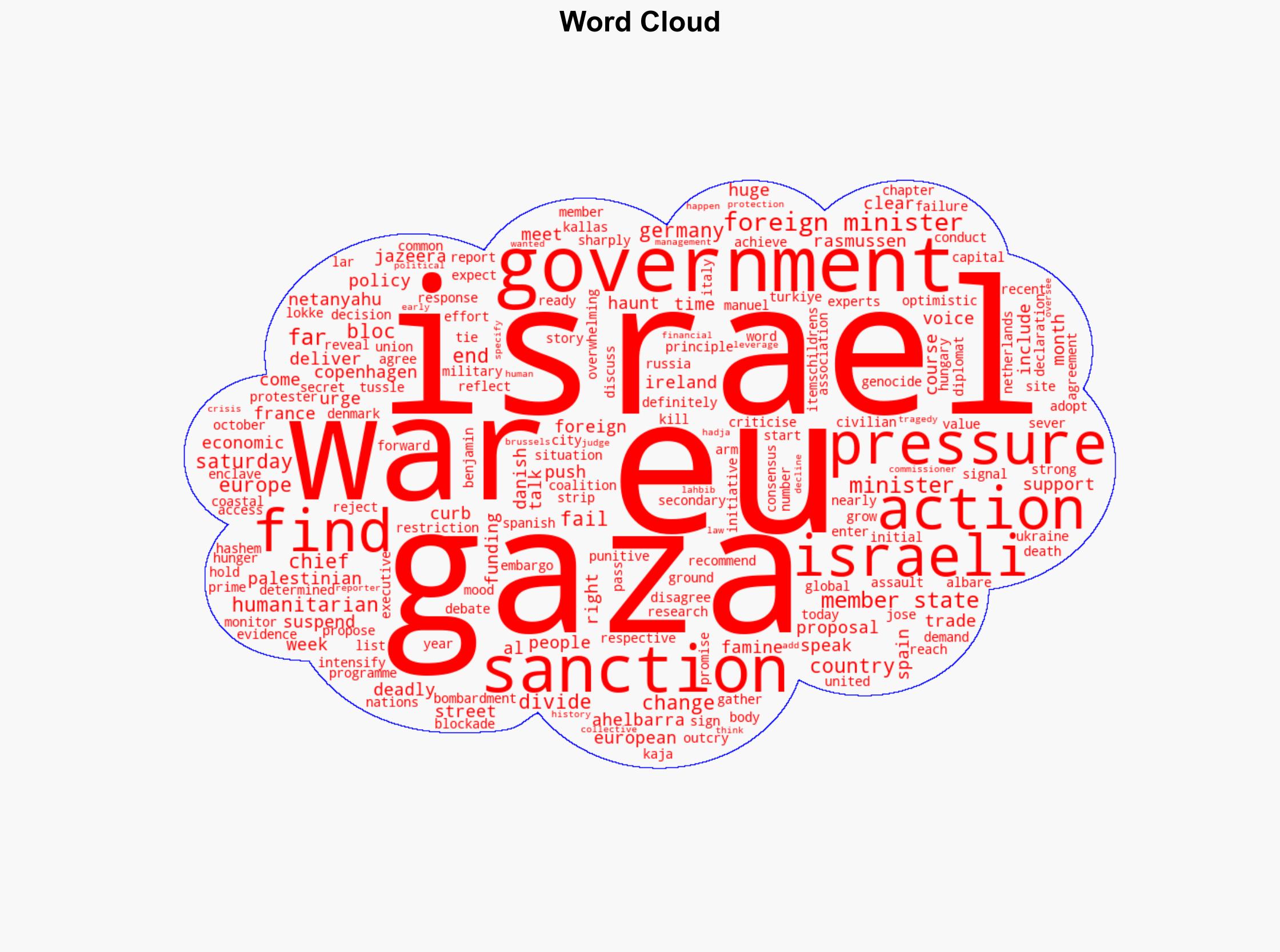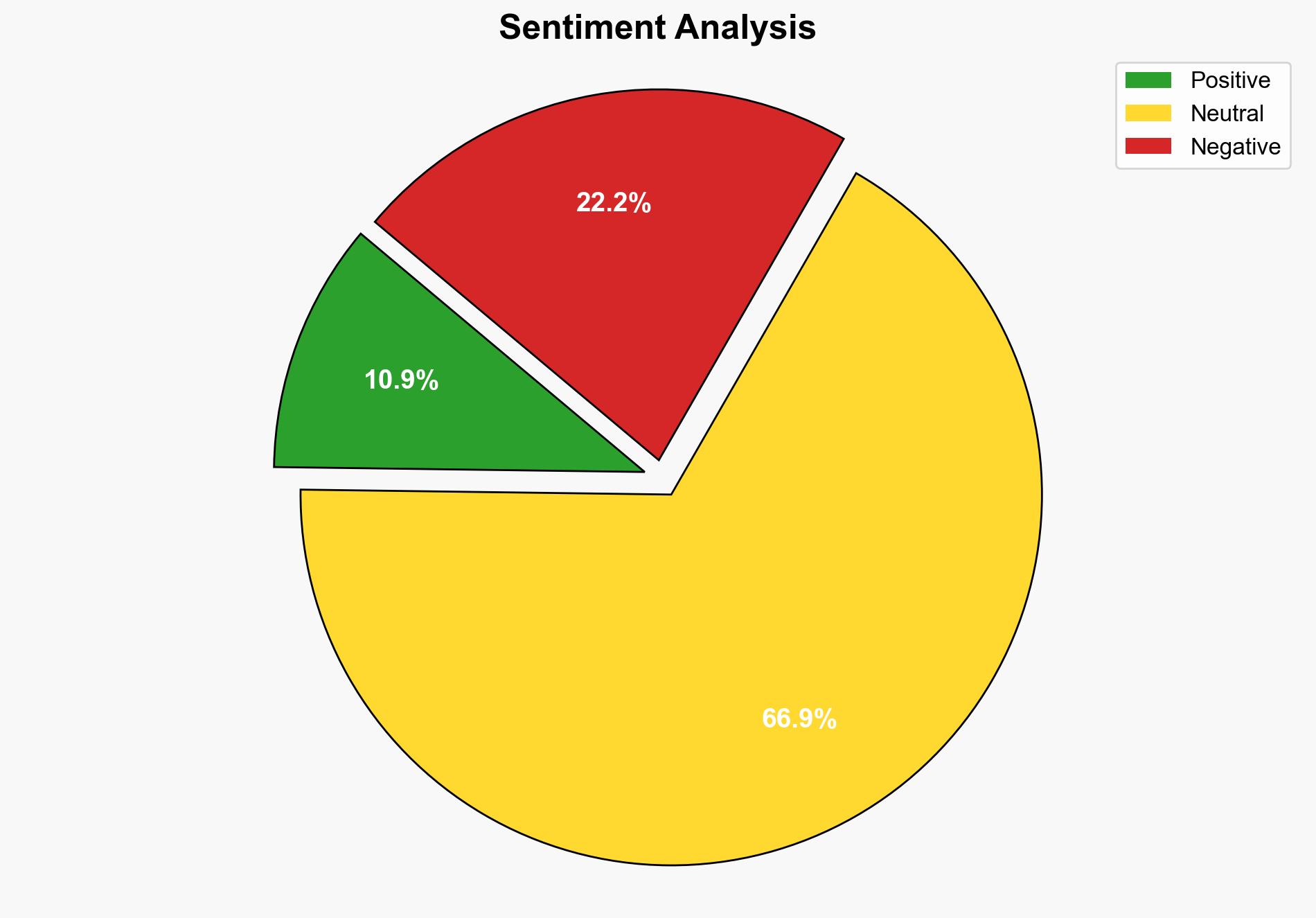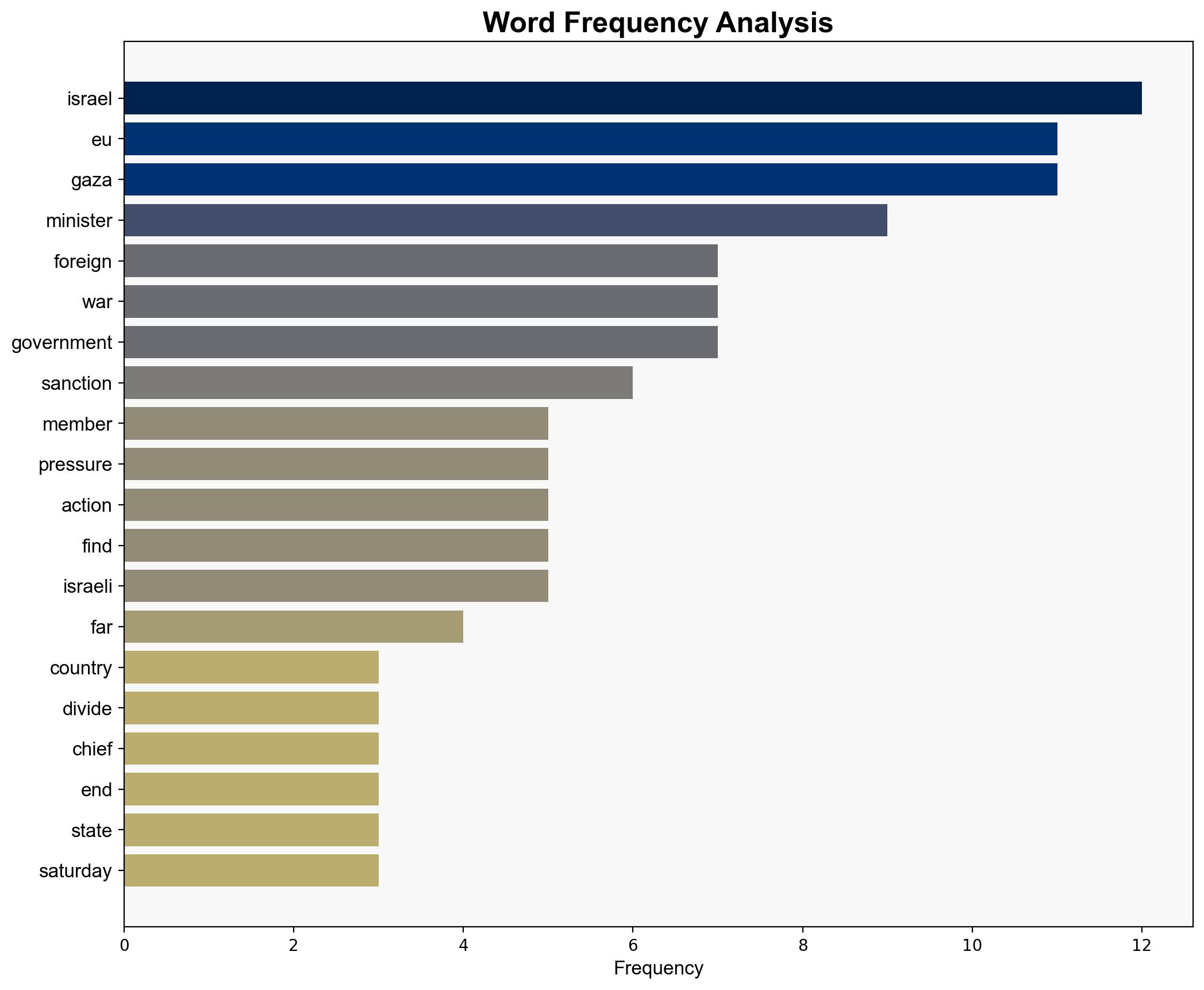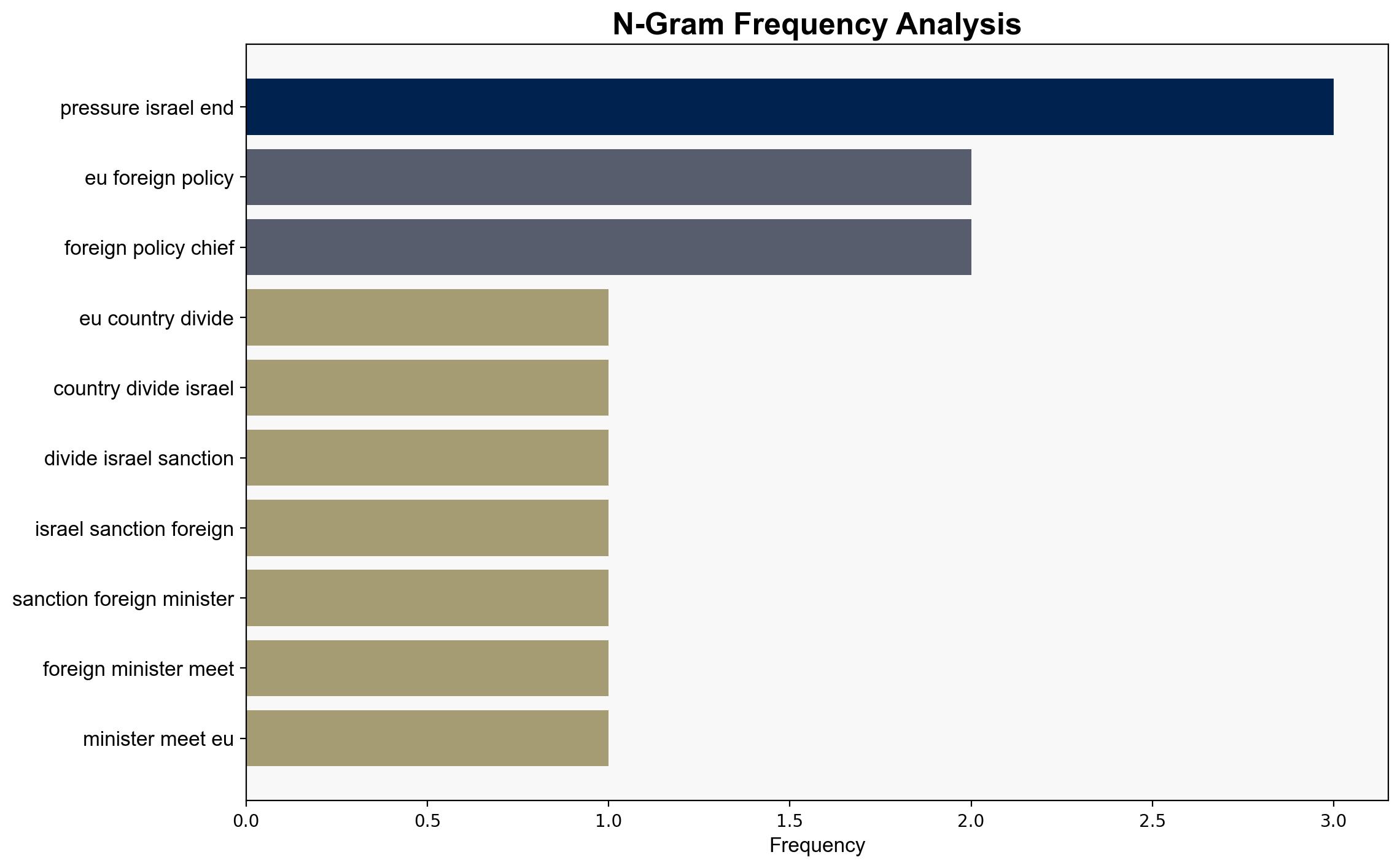EU nations divided on sanctioning Israel for Gaza war as FMs meet – Al Jazeera English
Published on: 2025-08-30
Intelligence Report: EU nations divided on sanctioning Israel for Gaza war as FMs meet – Al Jazeera English
1. BLUF (Bottom Line Up Front)
The European Union (EU) remains divided on imposing sanctions against Israel due to its military actions in Gaza. The most supported hypothesis suggests that the EU will not reach a consensus on sanctions, given the diverse political and economic interests of member states. Confidence level: Moderate. Recommended action: EU should focus on diplomatic engagement and humanitarian aid to address the crisis while seeking a unified stance on human rights advocacy.
2. Competing Hypotheses
Hypothesis 1: The EU will not reach a consensus on sanctioning Israel due to divergent national interests and political alliances within the bloc.
– **Supporting Evidence:** Member states like Germany and Hungary oppose sanctions, while others like Spain and Ireland support them. The EU’s history of requiring unanimity for foreign policy decisions complicates consensus.
Hypothesis 2: The EU will eventually agree on a limited set of sanctions or symbolic actions to signal disapproval of Israel’s actions in Gaza.
– **Supporting Evidence:** There is growing public pressure and protests across Europe demanding action. Some member states have shown support for initiatives like suspending trade agreements or research funding.
Using ACH 2.0, Hypothesis 1 is better supported due to the entrenched political divisions and the requirement for unanimous agreement, which historically has been challenging to achieve in the EU.
3. Key Assumptions and Red Flags
– **Assumptions:** The analysis assumes that EU member states prioritize national interests over collective EU foreign policy. It also assumes that public protests will not significantly alter government positions.
– **Red Flags:** Potential shifts in public opinion or unexpected geopolitical developments could alter member states’ positions. The lack of concrete data on internal EU negotiations is a blind spot.
4. Implications and Strategic Risks
– **Geopolitical Risks:** Continued division within the EU could weaken its global influence and credibility in advocating for human rights.
– **Economic Risks:** Failure to act may strain EU-Israel economic relations and affect EU’s internal cohesion.
– **Psychological Risks:** Public disillusionment with EU’s inaction could lead to increased domestic unrest and political instability in member states.
5. Recommendations and Outlook
- Focus on diplomatic channels to mediate the conflict and provide humanitarian aid to Gaza.
- Encourage EU member states to find common ground on non-punitive measures that uphold human rights.
- Scenario Projections:
- Best Case: EU achieves a unified stance, enhancing its diplomatic leverage.
- Worst Case: Continued division leads to diminished EU influence and internal discord.
- Most Likely: EU remains divided, with individual states pursuing independent policies.
6. Key Individuals and Entities
– Kaja Kallas
– Jose Manuel Albares
– Lars Lokke Rasmussen
– Benjamin Netanyahu
7. Thematic Tags
national security threats, regional focus, geopolitical strategy, humanitarian crisis





